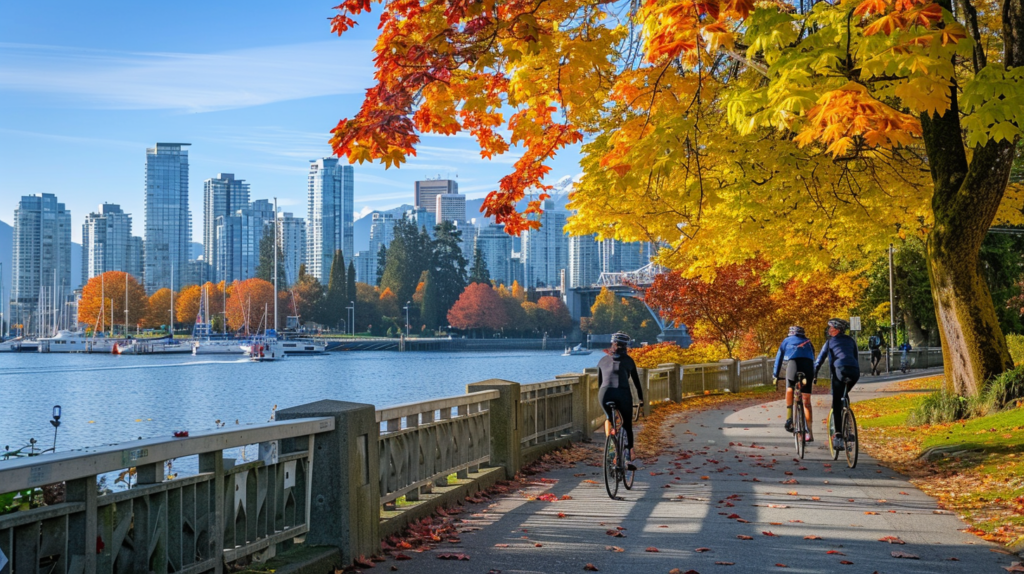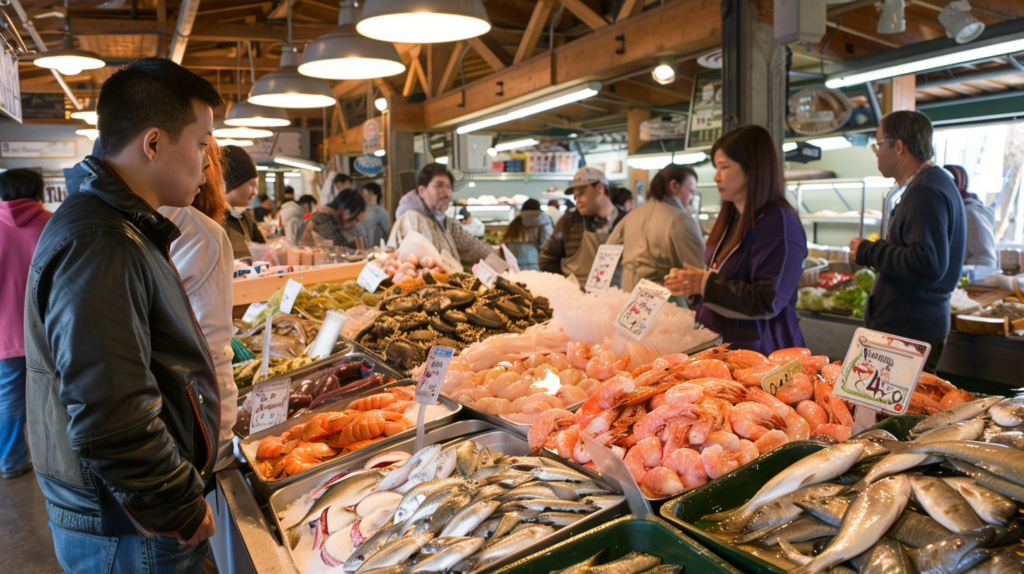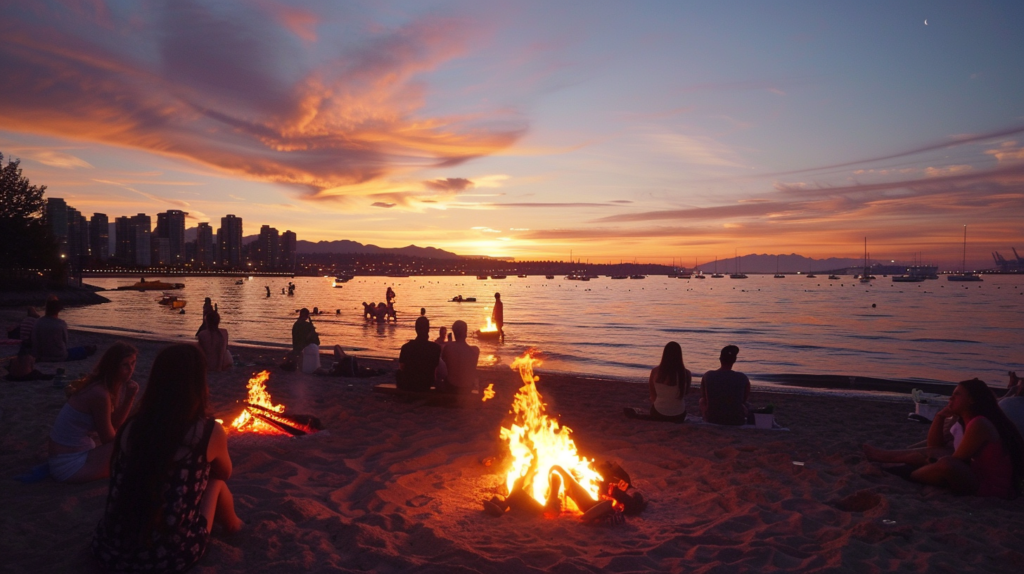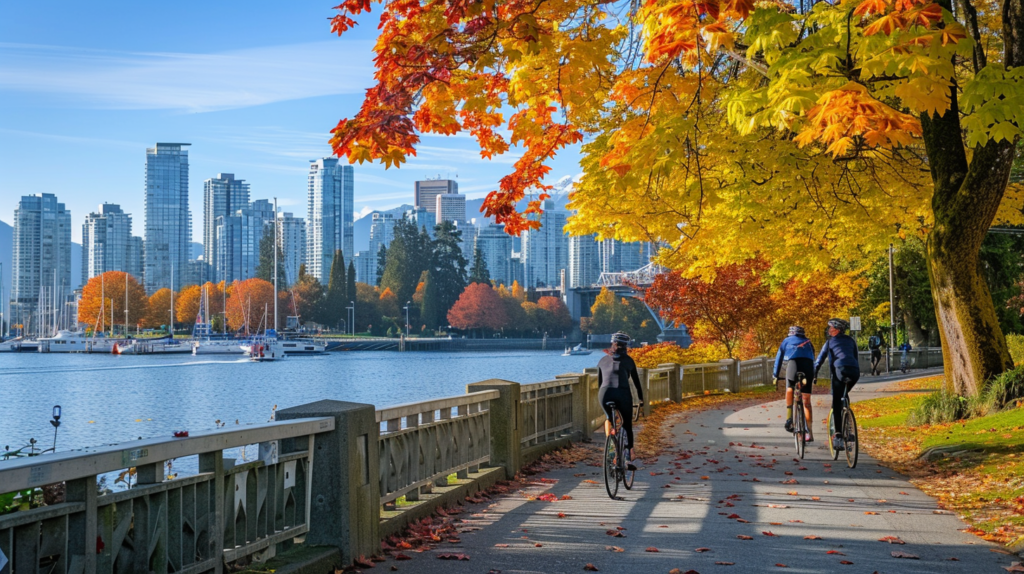Embrace nature and urban life through this “Things to Know Before You Go to Vancouver” guide! Discover Canada’s coastal gem and enjoy what it has to offer like a true local.
Vancouver, nestled between the Pacific Ocean and the Coast Mountains, is celebrated all over for its picturesque landscapes and vibrant cultural scene. As one of the most liveable cities globally, who could resist its dynamic mix of outdoor activities and urban sophistication? Still, there are some important things to know before you go to Vancouver including preparing for a city that caters to all interests.
One thing’s for sure, though. Whether you’re exploring lush parks, savoring diverse cuisines, or wandering through historic neighborhoods, Vancouver welcomes you with its wide open arms any season of the year!

Best Time to Visit Vancouver: Cherry Blossoms and Ski Slopes
The first things to know before you go to Vancouver should definitely include timing your visit for the spring (April to June) or fall (September to November). That’s because these seasons provide mild weather and fewer tourists, ideal for relaxed exploration.
Add to that some notable events that enhance your visit including the Vancouver International Film Festival in October and the Cherry Blossom Festival in April— each adding unique cultural experiences to the city’s offerings.
Local Customs and Etiquette in Vancouver: Polite and Punctual
Understanding local customs is always crucial in every visit to a foreign land. In Vancouver, a handshake with eye contact is common courtesy.
In terms of dressing up, casual attire is widely accepted, though formal wear is necessary for certain religious sites and upscale events.
And should you decide to dine out, do note that tipping is standard at 15-20% in restaurants, bars, and taxis, and it’s also polite to tip hotel housekeeping and tour guides.
Getting Around Vancouver: Bikes, Boats, and SkyTrains
Navigating the city is pretty straightforward, with efficient public transportation options including buses, SkyTrain, and SeaBus, which are all managed by TransLink.
However, the city is bike-friendly, too, with numerous lanes and rental shops. But for scenic routes, we recommend putting on your most comfortable sneakers and try walking the Stanley Park Seawall. Apps like Google Maps and Transit are also useful for those much-needed real-time transit updates.

Must-Visit Attractions in Vancouver: Seawalls and Suspension Bridges
For more things to know before you go to Vancouver, note that visiting key attractions like Stanley Park will give you stunning ocean views that are always worthy of an Instagram post.
Then be sure to visit Granville Island if you’re a foodie/art enthusiast or simply a hungry bohemian, and the Museum of Anthropology if Indigenous people’s culture catches your fancy.
Lastly, who can forget the Capilano Suspension Bridge, which offers adventurous canopy walkways above the forest floor?
Food and Drink in Vancouver: Sustainable Seafood and Craft Beers
Vancouver’s food scene reflects its cultural diversity, offering fresh seafood like Pacific salmon and spot prawns.
The Richmond Night Market comes to mind, being a hotspot for Asian street food. But for upscale dining, many establishments thrive in areas like Yaletown.
The city also caters well to dietary restrictions, with numerous vegan, vegetarian, and gluten-free options, for a worry-free gastronomic adventure for everyone!
Accommodation Tips for Vancouver: Urban Retreats and Forest Lodges
Choosing the right accommodation can always enhance your visit.
With that, Downtown Vancouver is ideal for those who prefer being close to urban activities. Neighborhoods like Kitsilano or the West End offer a quieter environment close to beaches and parks.
But for more unique stays, do include boutique hotels and historic bed and breakfasts in areas like Gastown to your accommodation prospects.
Budgeting for Your Trip to Vancouver: Eco-Friendly and Economical
Another vital thing to know before you go to Vancouver concerns budgeting for its high living costs.
In a nutshell, accommodation ranges from budget hostels at CAD $50-80 per night to luxury hotels above CAD $300. Dining costs vary from CAD $10-20 for casual meals to CAD $30-60 at mid-range restaurants. Public transport is affordable with a single-zone ticket at CAD $3.05. Attractions like the Vancouver Aquarium cost around CAD $40, but many parks and public spaces are free.
With those in mind, crunch the cash and plan out which activities you’re really willing to spend on during your holiday!

Safety and Health in Vancouver: Trails and Treatments
Vancouver is relatively safe, but keeping an eye on personal belongings in crowded areas is always wise. On that note, Areas around East Hastings might require extra caution at night.
The city also boasts excellent water quality and healthcare facilities, though non-residents should have travel health insurance due to high service costs.
Local Experiences in Vancouver: Kayaks and Culinary Tours
For a genuine local experience, engage in outdoor activities like hiking in the North Shore Mountains or kayaking along the coastline. These activities would typically range from CAD $50 to $150.
For cultural and culinary tours that offer insights into Vancouver’s rich history and diverse food scene, costs would probably vary from CAD $30 for walking tours to around CAD $100 for food tours.
Things to Know Before You Go to Vancouver
These things to know before you go to Vancouver should prepare you for a city where nature meets vibrant urban life. From outdoor adventures to cultural explorations, Vancouver offers a wealth of experiences.
Remember to explore responsibly, embrace the local lifestyle, and share your experiences to help others discover the depth of this beautiful city.
Join the conversation on our platform to exchange tips and stories that enhance the travel experience for everyone.
Start by reaching out to us in the comments below!
